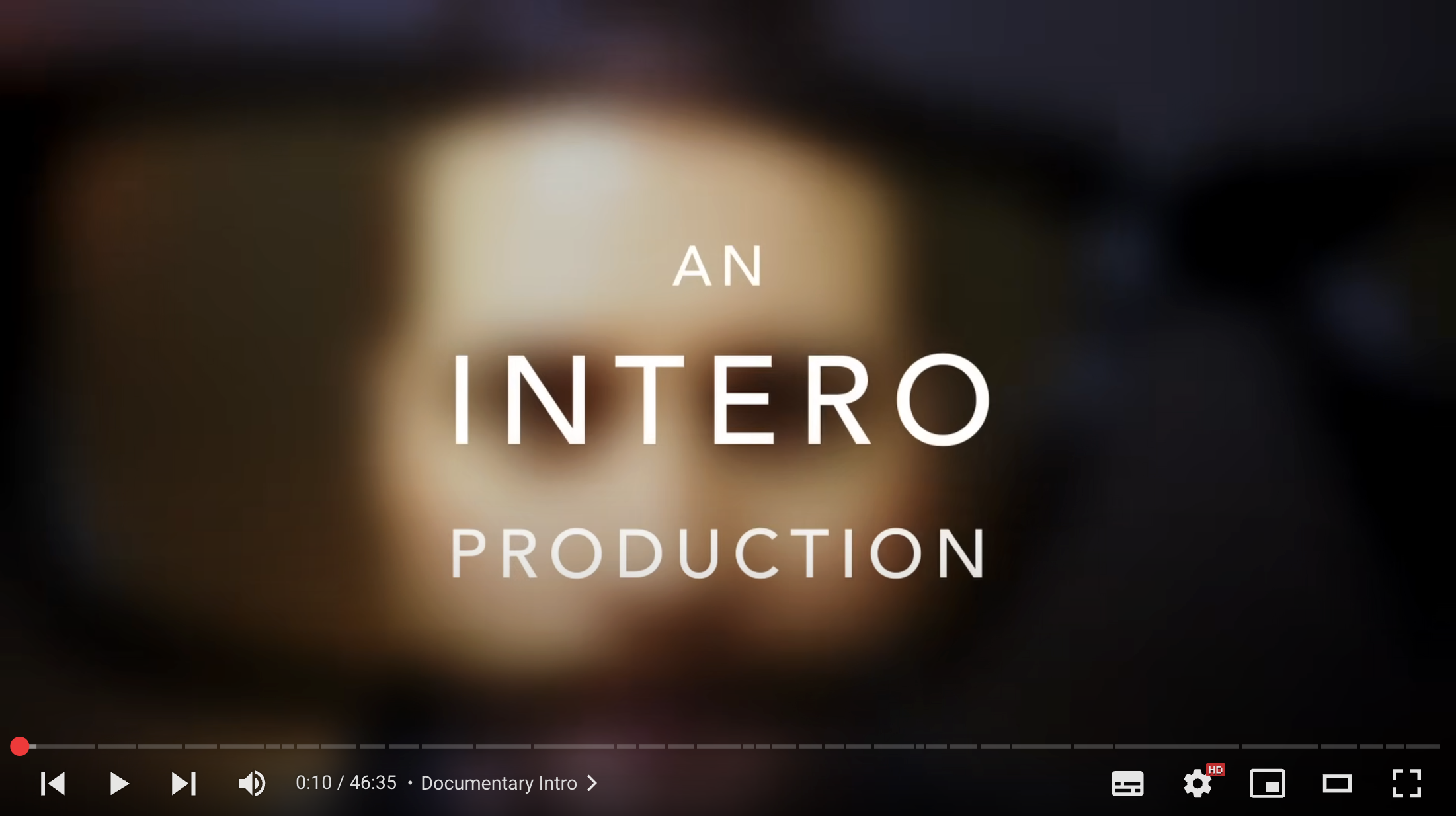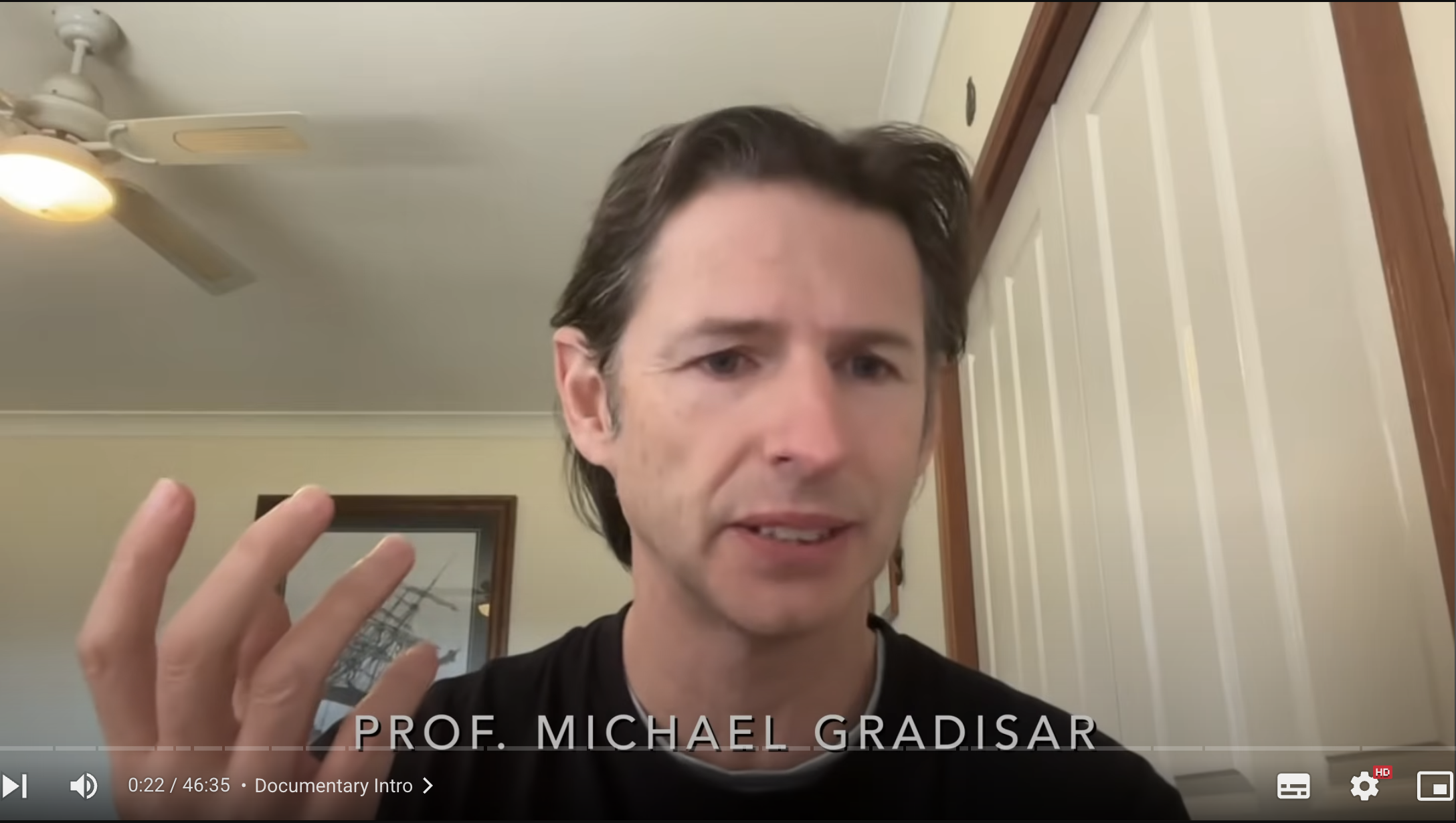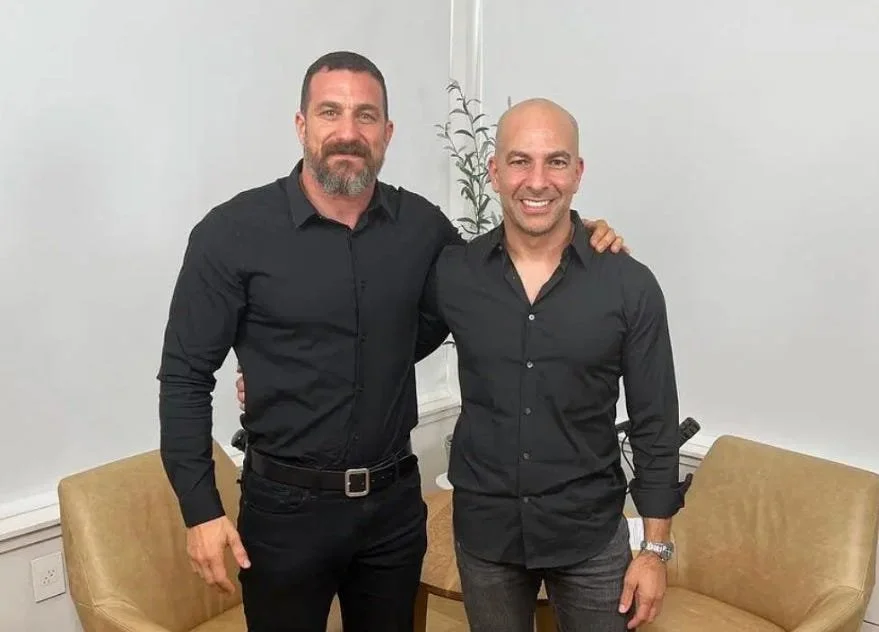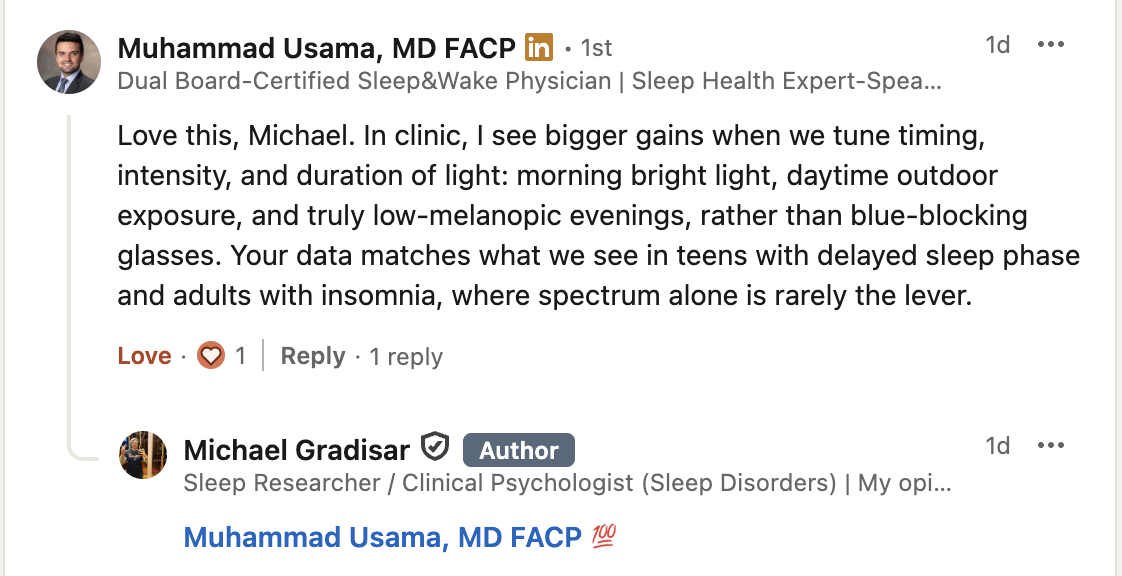#167 - Doco on the (Lack of) Science behind Bluelight-Blocking Glasses
A 45-min documentary that chronicles the separate pathways of the science and the marketing of bluelight-blocking glasses (BB glasses) dropped this week.
I played a role in this documentary.
Even if you don’t have time to watch it right now - I encourage you to watch the first 1 minute:
https://www.youtube.com/watch?v=LR6V2s9pKT0&list=LL&index=5&t=900s
Behind the Scenes
When I was interviewed for this documentary, I just thought it was going to be another regular podcast. Clearly I didn’t read the brief. And I didn’t realise what I was getting into.
Both interviewers - Sebastian and Lina - knew their stuff.
I was really taken aback by some of the questions.
There were questions that were above and beyond the typical knowledge that health and sleep coaches possess.
These guys were understanding the mechanisms of light, sleep and circadian rhythms.
At the end of the interview, Sebastian asked me for suggestions on who else they should speak to.
My first answer was “the Harvard people. It’s only fair.”
In the Doco, I’m seen commenting on the flaws of ‘the Harvard study’ which was led by Chang and colleagues in 2015.
I stand by these limitations, and will continue to call for one of them - which is that the study needs to be replicated to see if a screen before sleep can delay your circadian rhythm by 90-min. Such a finding defies the theory of circadian rhythms, and it defies what I’ve observed in clinical practice for over 20 years.
Yet, so many people wield the Chang et al (2015) study like a sword. The go on the attack, or counterattack with this study - or I should say - single study.
They’ll even do this in response to our review last year where we table the data from 11 studies that replicate each other.
I guess a lot of people simply don’t understand the powerful scientific principle of replication.
A principle that is so much stronger than any individual study.
No matter which institution performed it.
After recommending the Harvard group, Sebastian asked me “What about Walker?”.
I smiled and said “You’d be lucky if you got Matt.”
As I found out after viewing the first edit, it looks like Sebastian was lucky.
Matt also played a role.
To my surprise, Matt was supportive of the science, and the work that my team and others have done in demonstrating blue-enriched artificial light from a screen doesn’t have a meaningful impact on your sleep - as we posed from the world’s first-ever test back in 2014:
To my surprise, the initial cut of the documentary also featured Peter Attia changing his stance on the light from screens as a problem.
This is the first time I’ve heard a public figure aside from Matt change their stance on the screenlight.
I wonder if anyone else in Peter and Matt’s circle will change their stance on whether blue-enriched light is to blame?
But then again …
Perhaps not …
After the Scenes
First, I wish to thank each and every person who engaged in fruitful discussions, or simply said thanks.
Strangely, the place where I received the most positive feedback was Facebook.
And when I see those comments through the eyes of my younger self - someone who looked up nervously at these sleep greats - I must admit, I’ve been stopped in my tracks this week at their acknowledgements
The same could be said for LinkedIn.
Again, a lot of people were appreciative.
I even had some terrific scientific discussions - which led to sharing and reading more light and health studies - a wonderful way for knowledge to increase further.
But like a lot of social media - there is the Good and the Bad and the Ugly - which I’ll ignore for now.
But there’s a new hypothesis forming in my mind when it comes to BB glasses …
Cognitive Dissonance
I learned about this psychological concept in undergraduate psychology back in the 90s with the example of what happens when we need to choose between two products to purchase. After we’ve made our purchase, we tend to focus on the positives of what we bought and the negatives of the one we didn’t.
Even though we were weighing up both the pros and cons of both products.
We do this for different reasons, but you can imagine that we feel more emotionally settled when we focus on the positives of what we bought instead of the negatives.
To that end, I think there’s some Cognitive Dissonance at play when it comes to BB glasses.
There’s a theme running through some people’s comments.
Those who have debated with me often mention their use of BB glasses.
Whether it’s for themselves or for others.
Now - if BB glasses are for themselves, then Cognitive Dissonance may be at play.
And that means it becomes a little more challenging to look negatively at their purchase.
If that’s you - please don’t look at your BB glasses that way. They didn’t do anything to you.
And please don’t look in the mirror. It’s not your fault either.
But if you bought your BB glasses from someone who claimed they help sleep, then look at them
unfavourably.
But for those who use BB glasses for others, I think cognitive dissonance isn’t the driving factor.
These folks are the ones who help others sleep.
And when I look into their profiles, my guess is that BB glasses are one of their tools to help their clients.
If that’s the case, then they don’t have a safety net.
And that safety net is bright light therapy.
That’s what works.
And at least some people in my LinkedIn network get it:
Conclusions?
It’s pretty simple. Take some time to watch the doco. I don’t mean to hype it up too much, but not only is (1) the production good, but (2) the storytelling is good, and (3) the background research is top-notch. A trifecta I can relate to and hope you do too.
- Prof MG
Click the below image to watch …













